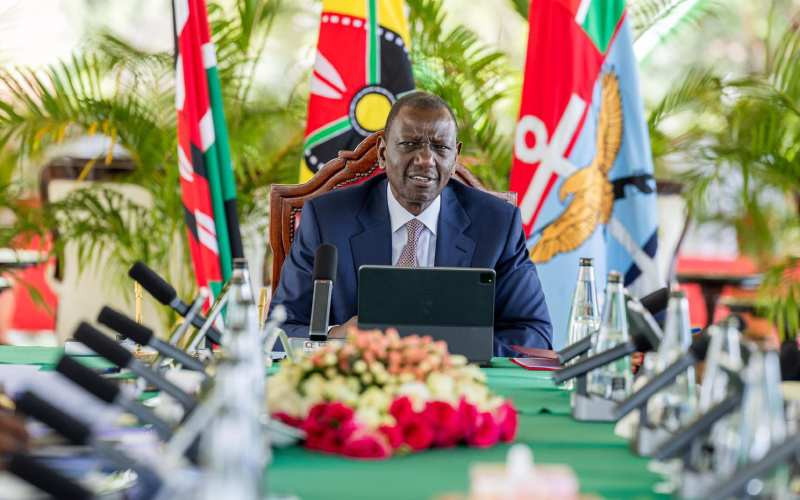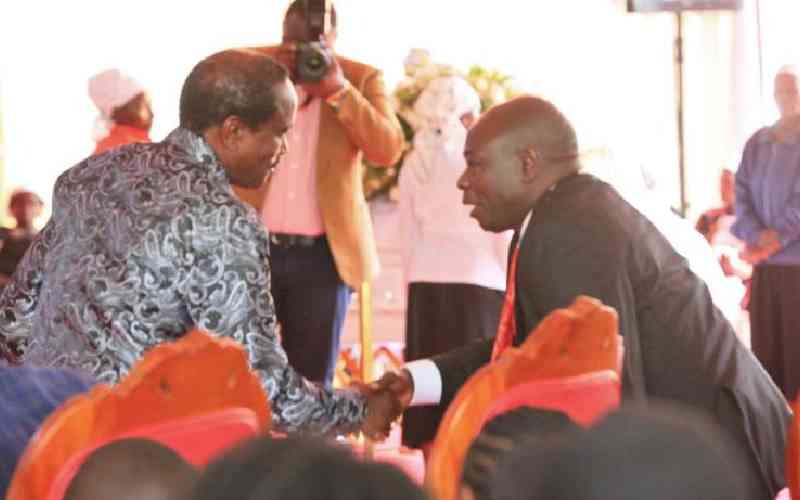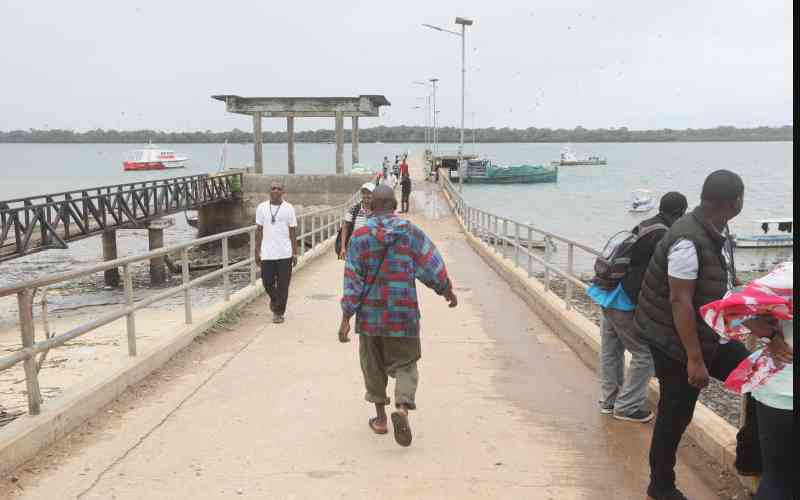Mole trappers. Butchery attendants. Charcoal burners. Kinyozi men and milkmen. That’s the script that defines the beginnings of some of the Kenyan athletes who have since risen to global fame.They have certainly made names for themselves in athletic circles, but theirs is a spectacular rags to riches story.
Behind their rich athletics CVs lies exciting life stories. Their extraordinary origins wow the sporting world.
The story of Elijah Lagat, the 2000 Boston Marathon winner and former MP for Chesumei Constituency, is an inspiring one. In 1992, Lagat weighed 158 pounds (71.7kg) and was battling breathing problems that resulted from clogged arteries. Doctors advised him to start running, which he started in January 1993. In 1994, he entered local races in the then Nandi District and he enjoyed it until he opted to compete in major races.
He entered the Rotterdam Marathon in 1996, where he wound up seventh. He won the Berlin Marathon in 1997, Prague Marathon in 1998 before upstaging Moses Tanui to win the Boston Marathon in 2000.
World marathon record holder Eliud Kipchoge’s journey to stardom is one that can be turned into an award winning movie – it simply inspires and warms the hearts of budding athletes. After completing Form Four at Kaptel High School, Kipchoge tried his hand in business.
He started operating butchery and later opted to buy milk and transported using his mother’s bicycle to Kenya Cooperative Creameries (KCC).
While transporting almost 150 litres of milk to KCC, Kipchoge’s bicycle broke down in the Kimondi area some five kilometres away. He decided to run to his friend Daniel’s home, which was quite some distance away, to borrow another bicycle. He impressed his peers on the road who asked him to enter an athletics competition in Kapsabet that weekend. Kipchoge gave it a shot.
He finished second in the race and he made the then Nandi District to provincials in Kitale where he finished second and proceeded to nationals in Mombasa. And the rest is history.
Joseph Ebuya, the 2010 world cross country champion, left his fellow herdsmen and traveled almost 500 kilometres from Turkana to Eldoret hoping to take up athletics and earn money to buy land and settle away from cattle rustlers. And within a short time, Ebuya was an accomplished athlete.
The same script reads for John Kelai, the 2010 Commonwealth Games marathon champion, who also hails from Turkana County. Despite having battled numerous challenges at the cattle-rustling prone area of Katilu in Turkana, Kelai cuts a different image in the athletics world –he uses prayer as a guide to ensure he stays ahead of the curve in distance running.
Coming from a rather hardship region, Kelai beat huge odds at his rural home to the pinnacle of global athletics, where he struck gold medal for Kenya at the Club Games.
“My parents passed on when I was 13 years old and my uncle had to take care of me. That has always inspired me and points to why I do the sign of the cross after every race. I dedicate my success to them,” said Kelai. He is best remembered for leading athletes to Voluntary Counseling and Testing (VCT) in Eldoret.
Immediate former world marathon record holder Dennis Kimetto rose from trapping moles in Kamwosor Village in Keiyo South to global fame, stunned the world when he ran a jaw-dropping 2:03.57 time in 42km –becoming the first man to run a sub-2:03 in marathon in 2014.
He used to set traps in order to flush out moles in people’s farms in his rural home to earn a living.
Wilson Kipsang, another former world marathon record holder, tried his hand in selling potatoes in Molo in Nakuru County after competing Form Four at Tambach High School in Keiyo North. He was later enlisted into Kenya Police where picked up athletics.
Geoffrey Mutai, who set a course record of 2:03.02 at the 2011 Boston Marathon, served as a general worker at Kenya Power in Nakuru before he started to train in athletics.
One time world’s second fastest marathoner Moses Mosop was a cobbler at the Kamasia trading centre in Marakwet. After finishing Form Four at the athletics-rich Marakwet High School, and with poverty a hindrance to his unbridled love for athletics, Mosop decided to repair shoes to get money to buy running gear and raise matatu fare to attend athletics competitions.
He says that through the experience, he earned a shoe repair contract at Kipnai Girls Secondary School in 2001 where he mended shoes for students and teachers every Sunday.
While herding goats seven kilometres away from home at Koisung’ur Forest, he was always ready for a quick dash just in case the notorious Pokot cattle rustlers attacked.
His story is a carbon copy of Micah Kogo’s storyline. He has also come a long way. Kogo, also who endured numerous hardships after completing his secondary school education, has cut himself a niche in athletic circles.
Born of peasant parents in Orane village in Burnt Forest, Uasin Gishu County, Kogo discontinued schooling after dropping out in Form Three at Tulwet High School for lack of fees in 2001.
But in 2003, Kogo who operated a butchery at Burnt Forest Trading Centre made a meteoric rise by breaking the world 10km record and managing a runner-up finish in his debut at the Boston Marathon. After his academic dreams crash-landed in 2002, fortunes were up for Kogo. His elder brother then employed him to run a butchery at the Burnt Forest Trading Centre.
By and by, he saw some athletes in their usual training gear and developed an interest in the sport. He then began to invest in the training kit and picked some training skills from the athletes. Within a year, he had started training and would record his achievements in his running diary. Steadily he made a mark on the global scene.
Robert ‘Mwafrika’ Cheruiyot, the four-time Boston Marathon winner, operated a hair shaving business in Mosoriot in Nandi County but had an unbridled love for athletics. One of the drivers of Fila camp, then run by two-time Boston Marathon winner Moses Tanui spotted him. He introduced him to Tanui, who was absorbed into the camp.
Wilson Chebet better known as ‘Mr Amsterdam’ completed Standard Eight at Kaptalamwa Primary School and then proceeded to Lelan Secondary School.
Unfortunately, he discontinued schooling due to lack of fees and decided to try his hand in business. He would buy sheep and goats in the Lelan area and transport them to Kaptalamwa market. But the business did not pick up and eventually, he ventured into athletics.
Alex Kipchirchir, the 2006 Commonwealth Games 800m and 1500m champion, had been employed in a small eatery before picking up athletics while Jairus Birech, the 2014 Commonwealth Games 3000m steeplechase silver medalist, worked as a milkman for 2007 world 800m champion Alfred Kirwa Yego. Herding goats sharpened athletics skills for some world beating women athletes. They include 2018 London Marathon winner Vivian Cheruiyot and two-time world marathon champion Edina Kiplagat.
 The Standard Group Plc is a
multi-media organization with investments in media platforms spanning newspaper
print operations, television, radio broadcasting, digital and online services. The
Standard Group is recognized as a leading multi-media house in Kenya with a key
influence in matters of national and international interest.
The Standard Group Plc is a
multi-media organization with investments in media platforms spanning newspaper
print operations, television, radio broadcasting, digital and online services. The
Standard Group is recognized as a leading multi-media house in Kenya with a key
influence in matters of national and international interest.
 The Standard Group Plc is a
multi-media organization with investments in media platforms spanning newspaper
print operations, television, radio broadcasting, digital and online services. The
Standard Group is recognized as a leading multi-media house in Kenya with a key
influence in matters of national and international interest.
The Standard Group Plc is a
multi-media organization with investments in media platforms spanning newspaper
print operations, television, radio broadcasting, digital and online services. The
Standard Group is recognized as a leading multi-media house in Kenya with a key
influence in matters of national and international interest.





